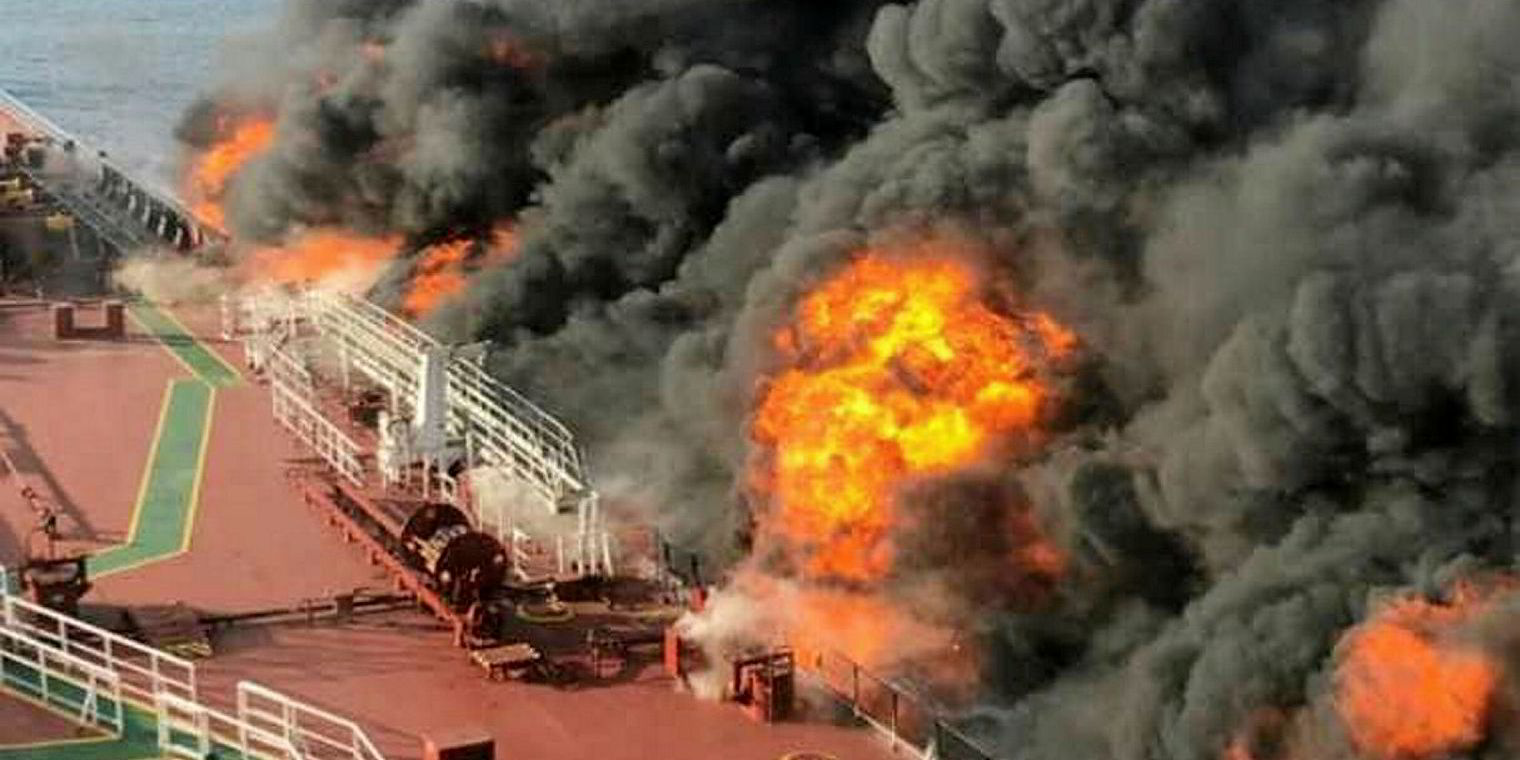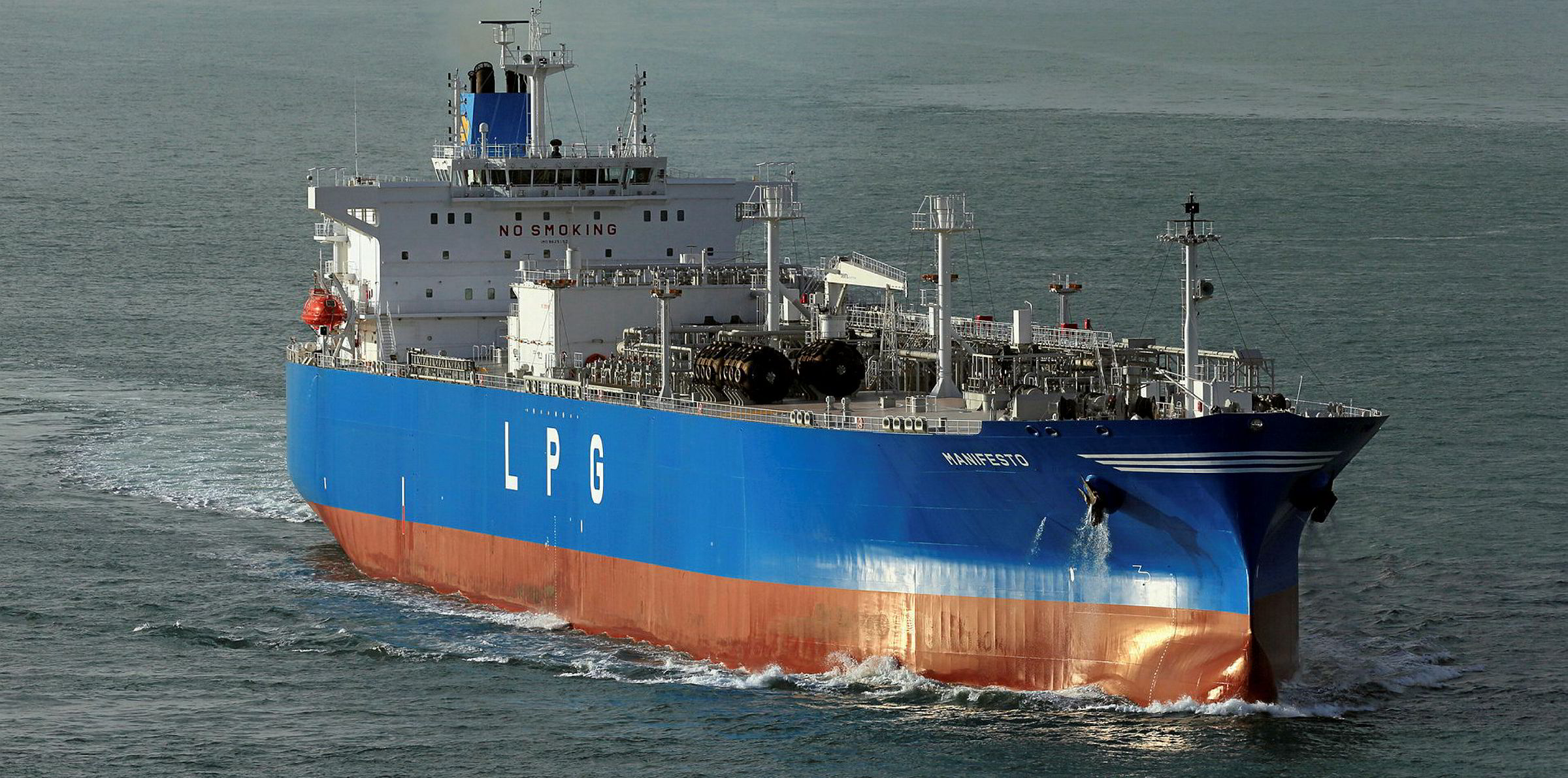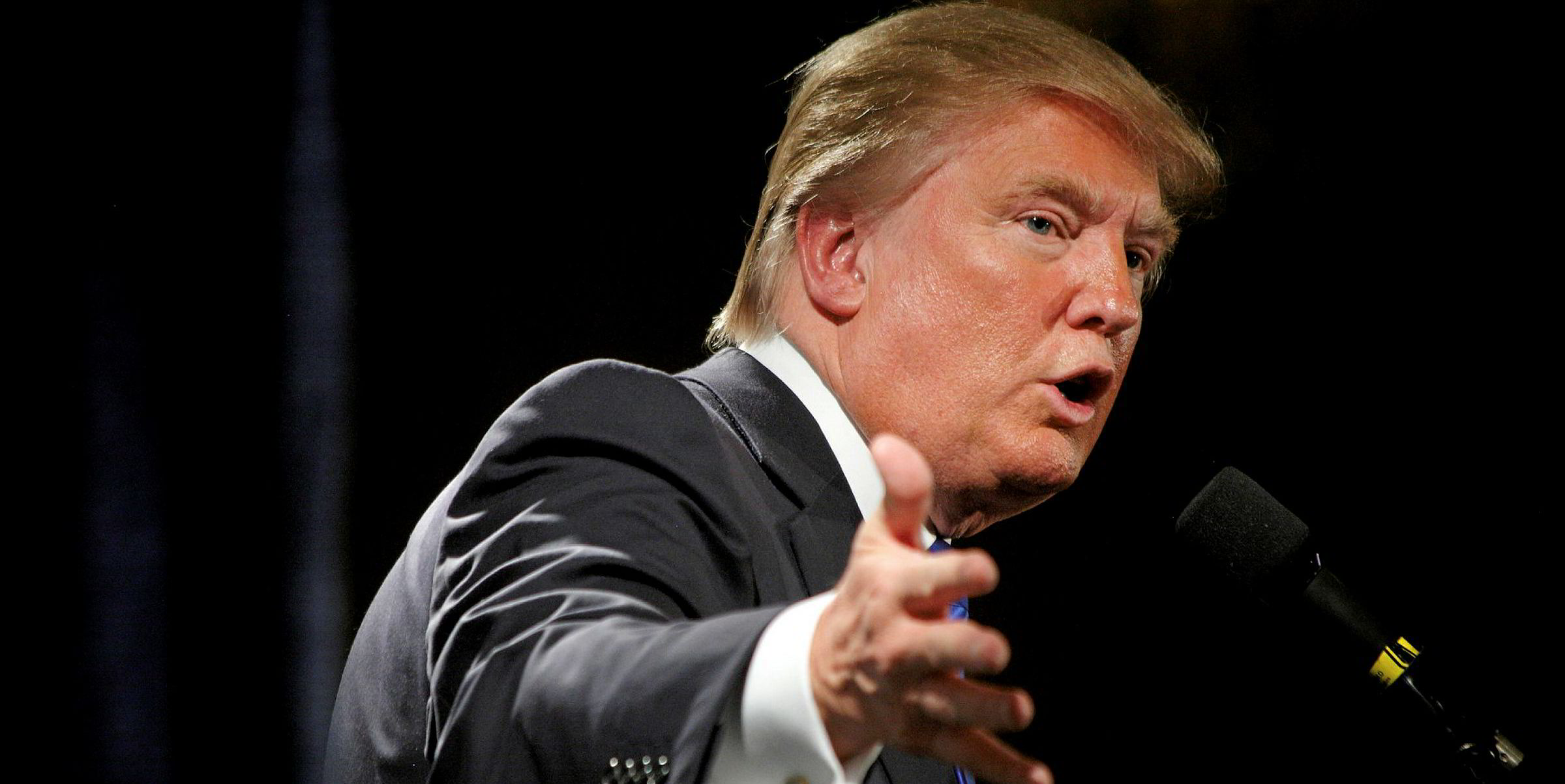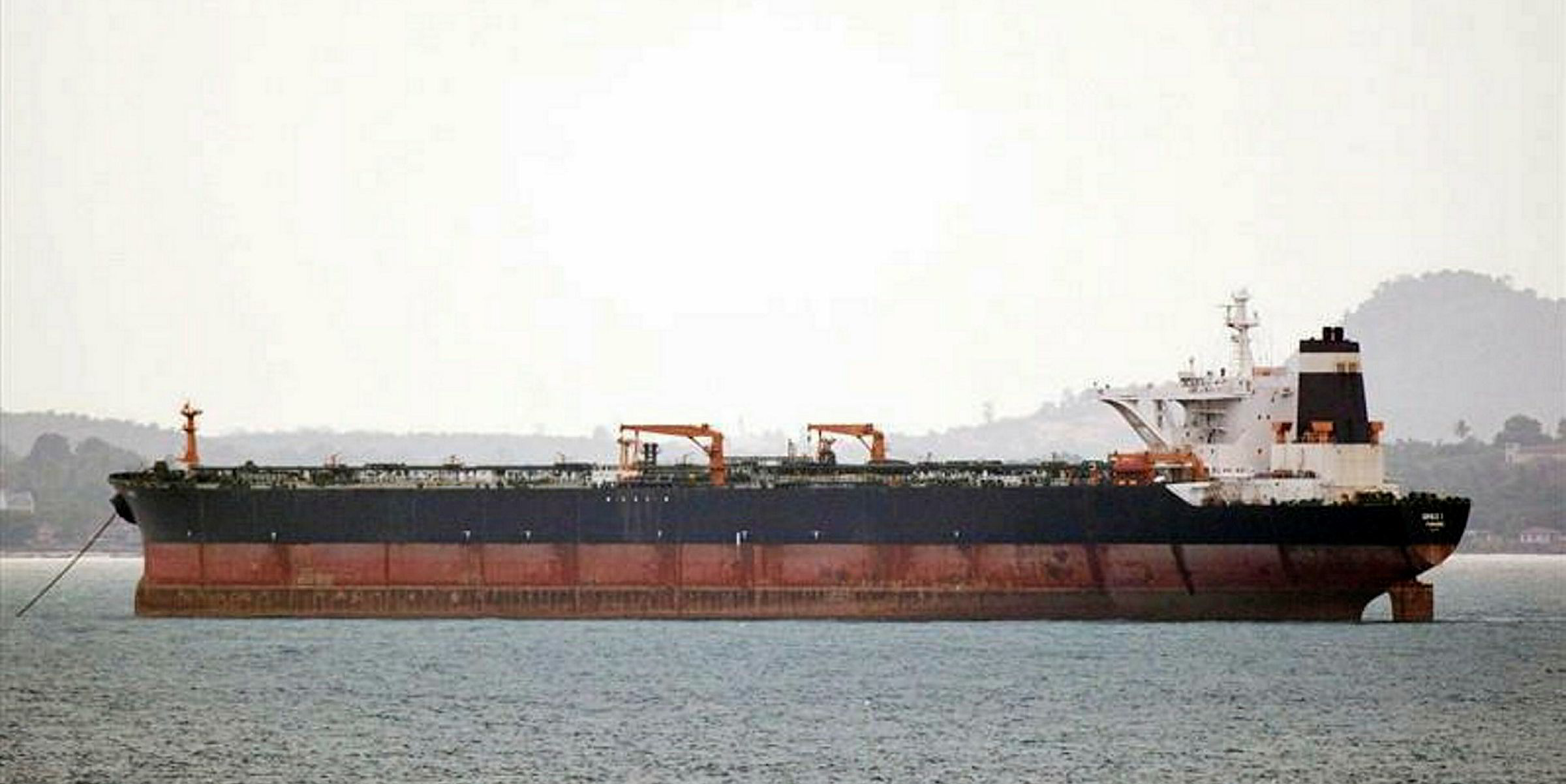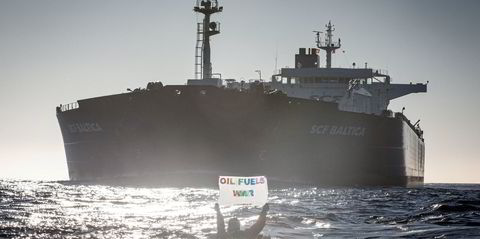Limpet mine attacks leaving tankers blazing in the Middle East Gulf; a laden tanker arrested with a gung-ho display of military bravura; a Western vessel snatched in response and in effect held to ransom; the world teetering on the brink of an economic downturn, or perhaps even a recession.
It has been a tumultuous few months, with shipping thrust to the centre of the world’s attention.
Ships and their cargoes have again been caught up in political battles between increasingly entrenched and extreme leaders in both West and East.
Meanwhile, many in the industry have been keeping their heads down, preferring not to draw attention to themselves, hoping it will all blow over.
Not Herbjorn Hansson, however. The colourful, outspoken chairman and chief executive of Nordic American Tankers (NAT) has come out and said what others have not: political unrest is good for shipping.
All credit to him for his candour. Shipping has an enviable culture of people calling matters as they see them. And long may that flourish.
But is he right? Or has the world moved on?
“The situation in the Middle East may well have a positive effect on NAT,” Hansson said in an update to investors late last month.
After the tanker attacks, which the US blamed on Iran, and the tit-for-tat ship arrests, he was saying little more than was clear to everyone.
Last week, Hansson doubled down with comments in NAT’s second-quarter results.
Among the notes printed in block capitals, seemingly in Hansson’s assertive voice, NAT said: “POLITICAL UNREST IS NORMALLY POSITIVELY IMPACTING DEMAND FOR OUR SHIPS. THE RELATIONSHIP BETWEEN CHINA AND THE US SHOULD BE SEEN IN THIS LIGHT. THIS FEATURE OF THE TANKER MARKET IS NOT ALWAYS UNDERSTOOD BY OBSERVERS.”
Further on, in a milder tone — and in normal text — the company added: “It is important to note, in light of trade war headlines currently, that political uncertainty can be a positive for tanker shipping, as inefficiencies in the energy logistical chain stretches the tanker fleet (storage, delays, different trade patterns, etc) and subsequently limits supply of tankers.”
To some extent, Hansson is stating the obvious. However, the implication is that the worse events turn out to be, the more positive for the market, in financial terms at least.
To some extent, Hansson is stating the obvious. However, the implication is that the worse events turn out to be, the more positive for the market, in financial terms at least. But do the numbers justify such a view?
Petter Haugen, a shipping analyst at Kepler Cheuvreux, looked at the situation in the Middle East Gulf following the tanker attacks in early June. Closure of the Strait of Hormuz would shut in about 19m barrels per day, or 30% of world seaborne oil trade, with China rather than the US the hardest hit by any disruption, he observed.
Tanker equities took a slight uplift at that time on the back of the perception that rates would rise to cover the higher risk premium. Since then, tanker rates have surged on market fundamentals, but equities have struggled on fears of an economic downturn.
However, the risk premium due to fears of more systemic political disruption appears to have faded almost entirely, as the US and UK promised to defend their ships in the Middle East Gulf with naval craft.
Haugen commented: “It should be easy to conclude that a closure of the Strait of Hormuz would be too disruptive to the global economy for any civilised party to let it happen.”
But events on the scale of closing the Strait of Hormuz have been responsible for the historic paydays for tanker owners.
The closure of the Suez Canal from 1967 during the Six Day War until it was cleared in the mid-1970s was one of the most profitable periods in the tanker industry’s history, with fortunes made and ship mortgage debts being paid off in months in some cases.
The Iran-Iraq war in the 1980s saw similar rate hikes, helping create John Fredriksen’s reputation.
Such trading spikes were fuelled principally by oil buyers’ fear of missing out on cargoes, but the world has changed fundamentally since then.
We live in a new age of data transparency, giving detailed, almost real-time knowledge of oil reserves, refinery flows and ship locations. With satellite imagery tracking, tankers can no longer hide simply by switching off their AIS beacons, as they have been prone to doing since the devices were introduced in the early 2000s.
The oil market has changed too. Today, it is dominated by traders rather than the old oil majors, and they voraciously analyse the data to gain any marginal advantage. It means the wild swings of old, and perhaps those in Hansson’s memory, are more muted today and far less likely to occur.
Seemingly every day, we are bombarded by warnings of a crisis in another part of the world: North Korean missiles, war in Syria, Venezuela’s meltdown, Hong Kong protests, Brexit uncertainty, ebola in Africa, and now the collapse of Italy’s government and a new threat to the stability of the European Union.
Yet the market reaction to each incident appears ever more muted. Shipping markets seem to be following the mood of a famous British newspaper headline: Crisis? What crisis?
